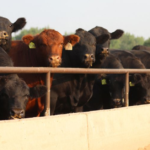
🇨🇦@COVID19Up: In a disturbing update, Ontario public health officials revealed that evidence is emerging which suggests SARS-CoV-2 can cause “immune dysregulation.”
According to Public Health Ontario, new research suggests that T cells aren’t doing so well in 2022, and that repeat SARS-CoV-2 infections may now be prematurely aging human immune systems.
“Long story short, COVID-19 leads to lasting, and possibly permanent changes in immune cells in some, but not all, people,” McMaster University immunologist Dawn Bowdish warned.
The scale isn’t yet clear. However, “a potential increase in acquired impaired immunity in the Ontario population could have a significant impact on the incidence and associated burden of infectious diseases ….and other conditions in the longer-term,” read the Public Health Ontario evidence brief.
“We’ve learned that this virus, and we can’t tell you how leads to the death of a whole bunch of T cells, and then seems to, at least in some people, lead to damage to the white blood cells they make after that infection,” said emergency doctor Kashif Pirzada. In some cases, the blood cells never fully recover “and seem to generate auto-immune reactions,” where the body’s immune system attacks its own tissues.
T cells have a life cycle, Pirzada said. Naïve cells are those that haven’t yet responded to infection. “Once a T cell commits to responding to one thing, it can’t respond to anything else,” Bowdish explained. “As we age, more and more of them become committed to responding to infections, or all the other things we might be exposed to, and fewer and fewer are available to respond to new threats.”
Having fewer of them is a sign of “immune aging.” We have some resilience to make more naïve cells, Bowdish said, “but not an indefinite capacity.”
“Many, hopefully, most people, will be fine,” she added, not wanting to sound too alarmist.
A group in Boston reported in a June preprint that people with long COVID had persistent pieces of SARS-CoV-2 spike protein in their blood up to a year, post-diagnosis, which could be a reservoir of infection.
“It could be that SARS-CoV-2 is remaining in the body and causing immune alterations,” said T cell researcher Anthony Leonardi.



